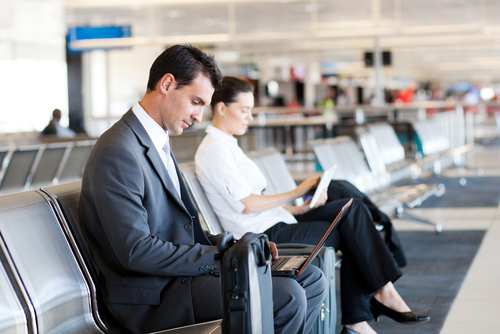Technology has significantly reduced the need for travel in several careers, but sales isn’t one of them. Unfortunately, two recent studies found that spending significant time on the road isn’t conducive to being a top performer.
The international consulting firm Pace Productivity, in a report entitled “How Sales Reps Spend Their Time,” concluded that top sales reps should spend no more than 13 percent of a typical 50-hour work week on travel. Any more than that cuts into vital hours necessary for actual selling, planning and order processing. And a study by the Sales Management Association on how sales managers use their time found the least successful ones spent more time on administration and travel than those who are “in the trenches” with their associates and customers.
If you’re in a sales career that requires significant travel, you’ll need to be self-disciplined and efficient to be successful. These four tips will help maximize earnings and job satisfaction.
Nexus Pass
Sales people who cover areas that extend into Canada will waste valuable time getting through customs, whether traveling by car or airplane. It can take anywhere from 10 minutes to over an hour to cross the Canadian border. One way to cut border-crossing times is to obtain a Nexus pass from the Canadian government.
Nexus is a program jointly administered by U.S. Customs and Border Protection and the Canada Border Services Agency. A Nexus membership card allows you to use self-service kiosks at border crossings, which substantially speed up the process. Anyone who was not been convicted of a serious crime and is a citizen of either country is eligible to apply. You’ll also need a passport and the $50 application fee.
Umbrella Insurance Policy
When sales people use their personal vehicles to do their jobs, it creates a complicated scenario in the event of an accident. Angela Daley of AAA Carolinas told America Now News that most delivery drivers, cab drivers and traveling sales people are unaware that their insurance policies will not cover them if an accident occurs while driving a personal vehicle for work purposes.
Consider upgrading your insurance to an umbrella policy. You will not only have higher coverage limits, but also comprehensive collision and even guaranteed asset protection (GAP) coverage. Make certain the policy specifically covers accidents occurring while conducting business. Most umbrella policies exclude claims that happen while conducting business unless this type of coverage is specifically requested, according to the Insurance Information Institute. Check with your employer regarding the level of coverage it provides in case of an accident. Remember, you can be held personally liable in some cases, so your insurance needs to cover anything the employer policy does not.
Smartphone Protection
If you drop your smartphone or run it through the washing machine at some point, you could be in trouble. Every minute your phone is not functioning could mean a lost sale. Some smartphone and tablet contracts include insurance, but they do not cover accidental damage. Further, manufacturer warranties typically only cover your device for 12 months.
Companies like Protect Your Bubble offer a smartphone protection plan that will cover your device for up to three years, regardless of how the damage occurred. Plans start as low as $5.99 per month, with a $50 deductible for most iPhones, Androids and tablets. Claims can be made by phone, and replacement equipment or a check can be sent to you in as little as 24 hours.
Tax Deductions
Most travel expenses associated with work are tax-deductible, including hotels, gasoline, insurance and maintenance costs. The key to maximize your deductions is maintaining thorough records of everything. The best way to do this is to use a credit card specifically for work-related travel expenses. Your statements will provide a record of your expenditures (but you should still save all receipts).
IRS Form 2106 is what you’ll need to file at the end of the year to claim your deductions. Keep in mind, speeding tickets, personal vehicle interest and simple commuting expenses are not deductible. Check out Business.USA.gov for more information on deductions and credits.





